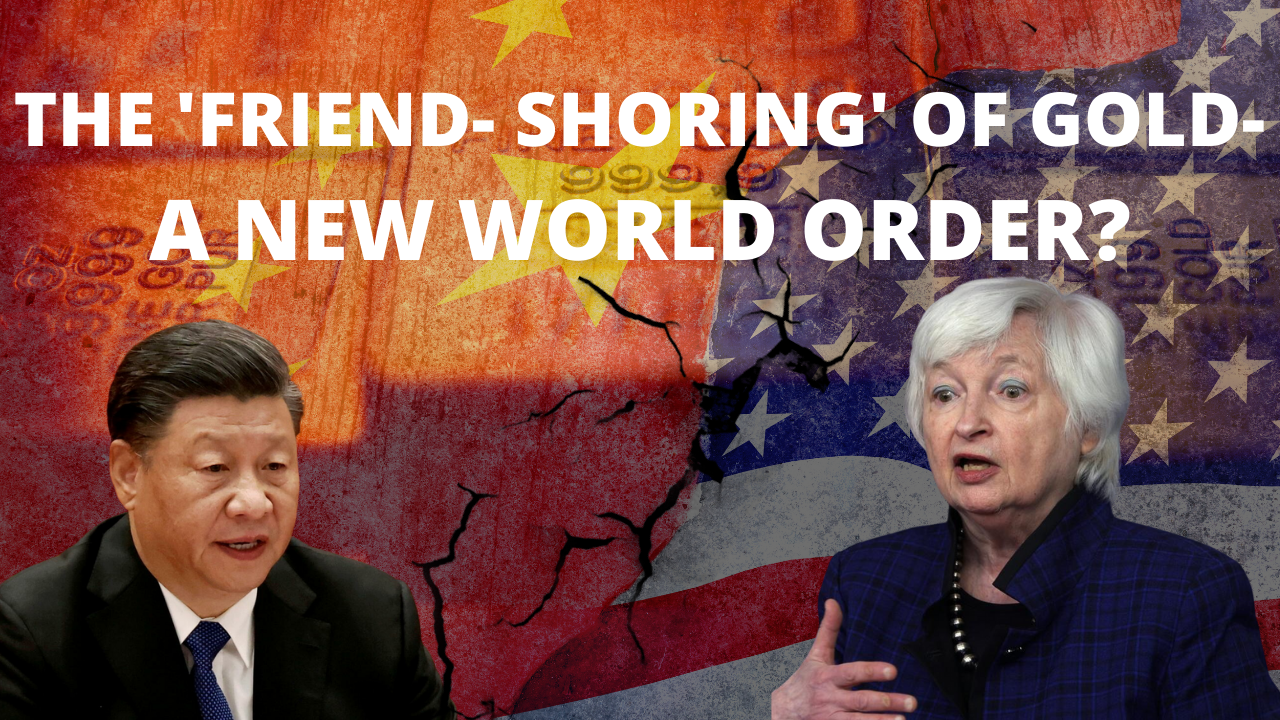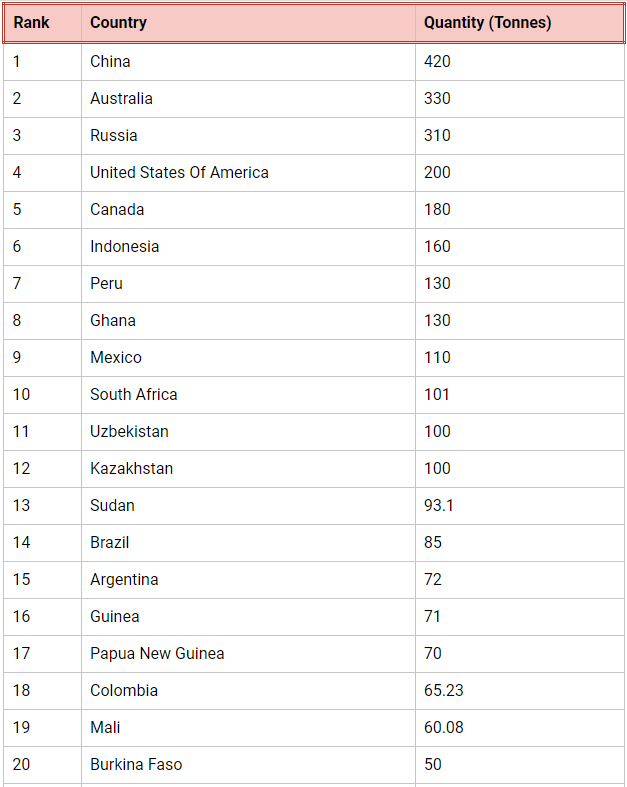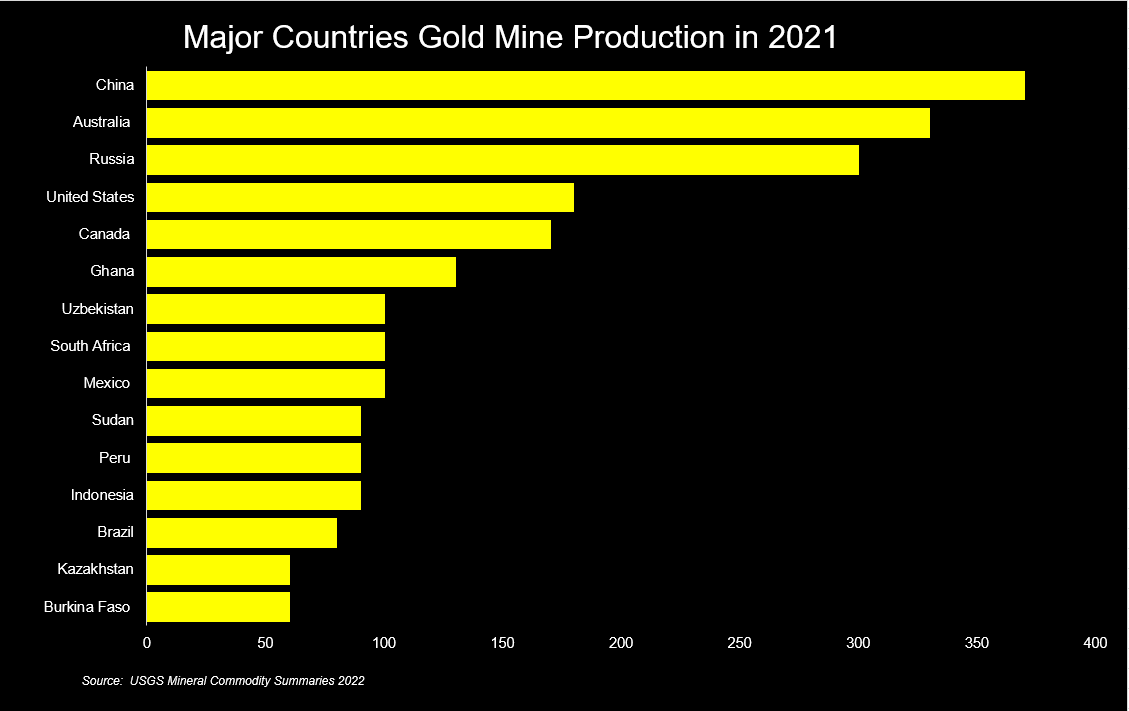
Gold and the US Federal Reserve have a love-hate relationship.
Hate because they both enjoy it when the other one performs badly, but love it because the Fed owns over 8,000 tonnes of gold and would rather no one else had any.
So it was a funny thing when a former Chair of the Federal Reserve proposed measures this week that would go a long way to boosting many aspects of the gold market, including the price of gold bullion…
Janet Yellen knows a lot about the economy.
She has a 1971 Yale Ph.D. in economics.
Yellen also authored countless papers and several books on the economy.
She’s been a professor at Harvard University, London School of Economics, and the University of California Berkeley.
She served in prominent positions in the U.S. government including the 15th Chair of the Federal Reserve and currently, she serves as the 78th Secretary of the U.S. Treasury.
It’s Not On-shoring, It’s Friend- Shoring Now!
In a speech on April 13 at the Atlantic Council in Washington D.C., Janet Yellen invented a new phrase ‘friend-shoring’.
This is related to the buzzword ‘on-shoring’, sometimes called ‘reshoring’.
On-shoring is the idea that because the globalization of trade flows has become too complex for national security.
Certain production facilities must be brought back on-shore for domestic production.
We discussed this concept in our January 28, 2021 post:
“Gold, the Tried-and-True Inflation Hedge for What’s Coming!” as reduced Globalization as ‘Made at Home’ policies is proliferating.
Personal protective equipment, became the poster child for on-shoring since the pandemic broke out.
Many were shocked to discover that only China-made masks.
As China had all the mask factories plus over a billion citizens to protect.
China for a time refused to export any masks.
Western countries were unable to obtain enough masks to protect their own citizens.
Governments everywhere are now worried about mask production, and also the production of many other crucial items.
Moreover, relying upon crucial imports from unfriendly places is not politically acceptable anymore.
In Yellen’s April 13 speech, she states:
“We cannot allow countries to use their market position in key raw materials, technologies, or products to have the power to disrupt our economy or exercise unwanted geopolitical leverage.
So let’s build on and deepen economic integration and the efficiencies it brings on terms that work better for American workers.
And let’s do it with the countries we know we can count on.”
To solve this issue Janet Yellen twisted the onshoring phrase to ‘friend-shoring’.
She means that not every item needs to be made inside every country.
As the economies that are friendly to one another would never stop trading during a crisis.
Furthermore, she means products made inside unfriendly countries will not necessarily allow the products made by friendly countries to compete.
Measuring the competition on aspects more complex than mere price; provenance will soon matter too.
Yellen states:
“Favoring the friend-shoring of supply chains to a large number of trusted countries, so we can continue to securely extend market access, will lower the risks to our economy as well as to our trusted trade partners.
We should also consider building a network of plurilateral trade arrangements to incorporate elements of the modern economy.
Which are growing in economic importance, especially digital services.
We should harmonize our approaches to protecting the privacy of data.
And a modernized trade system will also require the ability to effectively enforce trade policies and practices, both multilateral and bilateral.”
So what would Janet Yellen’s new friend-shoring paradigm do to gold supply?
Additionally, the table below displays the 2019 gold mine production.
The 2019 data shows that two of the top three producer countries, China and Russia are ‘unfriendly countries’ at least from an Irish/UK/American perspective.
Kazakhstan in addition to Uzbekistan is less obvious.
Also, it is likely to be excluded or tariffed when selling to western consumers and investors.
Gold Mine Production by Country (2019)

Major Countries Gold Mine Production (2021)

The graphs above are similar to gold production data for the year 2021 formed as a bar chart.
What Happens to Gold in ‘Friend-Shoring Paradigm
Of 2,250 gold tonnes produced by the top 15 countries, 830 tonnes would be called unfriendly according to Janet Yellen’s friend-shoring paradigm.
Moreover, that means 37% of annual production would not be exported to western economies.
Long time gold market followers might recall that before China joined the World Trade Organization gold production data was divided into sections:
Western World, China, and CIS (which included Russia, Kazakhstan, and Uzbekistan, among other Eastern European countries).
The ‘Western World’ production was considered what was easily accessible by trade agreements and available for Western consumers.
Furthermore, the ‘friend-shoring’ would return us all to this similar paradigm.
Another implication for gold production under a ‘friendly-shoring’ paradigm is that the friendly countries would no longer just compete based on price.
Designing new competition rules to favour countries and producers that follow the sustainability guidelines.
This guideline could include matters such as the highest possible wages paid to the mine employees.
Also, the lowest carbon emission generated per ounce of gold production, water conservation, and the footprint of the mine to name a few.
Silver’s global production footprint is different from gold’s.
Silver production in many cases comes from mines whose main goal is the production of other minerals.
Making silver a by-product instead of the main production goal.
The top 10 silver producing countries in order are:
Mexico, Peru, China, Russia, Poland, Australia, Chile, Bolivia, Argentina, and USA are in the 10th spot.
Since demand for gold comes most importantly from India and China the net effect of a 37% annual supply reduction is hard to assess.
But what is obvious is that after rules of this type come into force, a rush to hold physical metals might ensue once and until the global economy gets itself re-adjusted.
Buy gold coins and bars and store them in the safest vaults in Switzerland, London or Singapore with GoldCore.
Learn why Switzerland remains a safe-haven jurisdiction for owning precious metals. Access Our Most Popular Guide, the Essential Guide to Storing Gold in Switzerland here


